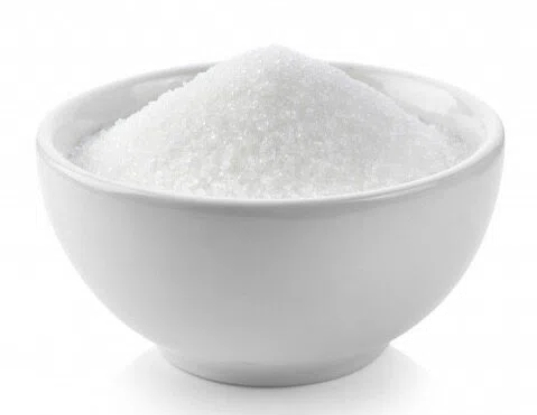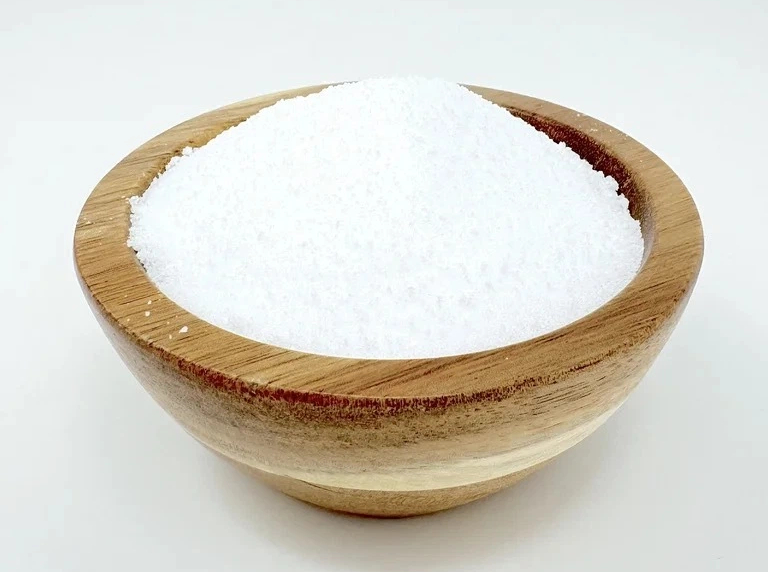Views: 222 Author: Sara Publish Time: 2025-10-29 Origin: Site








Content Menu
● Maltitol Manufacturers in Australia
● Major Maltitol Producers and Suppliers
● Global Brands with Australian Presence
● Forms and Technical Characteristics
● Quality, Compliance, and Certifications
● Applications Across Industries
● Supply Chain and Sustainability Considerations
● Implications for Australian Manufacturers
● FAQ
>> 1. What are the main forms of maltitol available in Australia and where are they used?
>> 2. How does maltitol influence texture and sweetness in baked goods and confectionery?
>> 3. Can maltitol be used in pharmaceutical coatings and chewables, and what considerations apply?
>> 4. What factors should be considered when sourcing maltitol for beverages?
Maltitol is a widely used sugar substitute derived from hydrogenated starch hydrolysates, offering about 70–90% of the sweetness of sucrose with lower caloric content. It is favored in bakery, confectionery, beverages, and healthcare products for its clean taste, smooth mouthfeel, and functional properties such as moisture retention and improved texture. In Australia, a growing ecosystem of maltitol manufacturers and suppliers supports food, beverage, and pharmaceutical formulations through blended sweeteners, maltitol powders and syrups, and contract manufacturing services. This article surveys Maltitol Manufacturers and Suppliers active in Australia, highlighting capabilities, product forms, applications, and key considerations for sourcing and partnerships. It also emphasizes how collaboration with reliable maltitol suppliers can accelerate reformulation, maintain product quality, and meet regulatory demands.

The Australian maltitol landscape comprises both domestic producers and international brands distributed locally. Typical maltitol suppliers offer multiple product forms (powder, syrup, and blends), technical support, regulatory compliance, and packaging options tailored to customer needs. Knowledge of product specifications, regulatory requirements, and supply chain reliability is essential for successful formulation projects. In addition, many suppliers provide value-added services such as custom blending, particle-size adjustment, and on-site technical support for R&D and scale-up.
- Wilmar Sugar (Australia) – A key player in alternative sweeteners including maltitol products, with technical data on sweetness intensity, caloric profile, and suggested applications in baked goods and confections. Wilmar's local presence supports timely supply and regional distribution.
- Roquette – Offers SweetPearl Maltitol Powder and LYCASIN Maltitol Syrup lines, widely used in baking, confectionery, and nutrition applications, with documented mouthfeel, stability, and processing behavior. Roquette's products are often supported by technical notes detailing usage in coatings, fillings, and sugar-reduced formulations.
- Caldic (Australia) – A broad ingredient distributor with maltitol-containing offerings, enabling formulation support for beverages, nutrition products, and snack items, alongside regulatory and logistical assistance for Australian manufacturers.
- DKSH Performance Materials (Australia) – Distributor with established coverage across the region, providing maltitol-related ingredients, technical service, and supply chain collaboration for food, beverage, and healthcare customers.
- Yume Food (Australia) – Notable for case studies and market insights on maltitol usage, including applications in coatings, dietary supplements, and processed foods, illustrating practical deployment and waste-reduction opportunities in supply chains.
- Global maltitol brands including SweetPearl by Roquette and other maltitol derivatives are available in Australia through distributors and direct channels. Local partnerships enable access to powder and syrup formulations, as well as technical data sheets and application notes that support reformulation projects.
- BLB Maltitol and other regional brands provide cost-effective options for certain applications, particularly in large-scale manufacturing settings where consistent supply and pricing are pivotal.
- Lycasin maltitol syrup and related products from Roquette illustrate the breadth of maltitol offerings accessible to Australian customers seeking varied sweetness profiles and functional characteristics.

- Powder maltitol – Commonly used in bakery, confectionery, and dietary products; attention to particle size, bulk density, hygroscopicity, and dissolution rate is important for process integration and mouthfeel.
- Maltitol syrup – Used in fillings, chocolates, beverages, and coatings; viscosity, solids content, and storage stability influence manufacturing steps and product texture.
- Blends and tailored formulations – Blends with other polyols or sweeteners to achieve targeted sweetness, browning behavior, and label readability for consumer products.
- For Australian markets, compliance with food-grade standards, allergen management, and traceability are critical. Suppliers typically provide certificates of analysis, GMP/ISO quality systems, and, where applicable, certifications such as HACCP or ISO 22000. Regulatory considerations include labeling requirements and permissible use levels in various product categories.
- Bakery and confectionery – Maltitol reduces sugar content while preserving texture, moisture, and bite, enabling lower-calorie cookies, chocolates, and candies with stable shelf-life.
- Beverages – Maltitol can contribute to reduced-sugar beverages with smoother mouthfeel and reduced crystallization in syrups and ready-to-drink products.
- Healthcare and nutraceuticals – Maltitol derivatives serve as sweeteners in chewables, tablets, and flavored syrups, supporting patient-friendly formulations without sacrificing taste.
- Dairy and frozen desserts – In ice creams and frozen novelties, maltitol aids in controlling ice crystal formation and enhances creaminess, particularly in sugar-reduced products.
- Reliability of supply, lead times, and inventory management are critical for maltitol in Australia, particularly for reformulation projects with tight production schedules. Relationships with multiple approved suppliers can mitigate risk and ensure continuity.
- Sustainability considerations include responsible sourcing, efficient production processes, and waste reduction across the maltitol value chain, from raw material procurement to end-user applications.
- For Australian manufacturers aiming to meet consumer demand for reduced-sugar products, maltitol offers a practical balance of sweetness, mouthfeel, and caloric reduction. Successful reformulation requires careful selection of product form (powder vs syrup), compatibility with existing processing lines, and compliance with labeling and nutrition regulations. Partnering with experienced Maltitol Manufacturers and Suppliers enhances formulation flexibility, accelerates scale-up, and supports regulatory diligence.
- Maltitol remains a versatile sugar substitute with a robust presence in Australia's ingredient landscape. Choosing a reliable Maltitol Manufacturers and Suppliers partner involves evaluating product forms, technical support, regulatory compliance, and supply chain resilience. A well-chosen supplier enables successful reformulation, cost management, and sustainable product development for food, beverage, and healthcare applications.
A successful maltitol sourcing strategy hinges on selecting trusted Maltitol Manufacturers and Suppliers that provide form flexibility, robust technical support, strong quality systems, and dependable supply chains. This combination enables efficient reformulation, optimal product performance, and compliant, consumer-ready outcomes across food, beverage, and healthcare applications.

In Australia, maltitol is mainly available in syrup and powder forms and is widely used in sugar-free candies, chocolates, baked goods and ice cream.
Maltitol can provide a sweetness and volume similar to that of sucrose in baked goods and confectionery, and help maintain the soft texture and moist taste of the products.
Maltitol can be used in pharmaceutical coatings and chewable tablets, mainly providing sweetness and volume. However, it is necessary to pay attention to its hygroscopicity and the possible gastrointestinal discomfort it may cause.
When maltitol is applied in beverages, its solubility, stability and the possible gastrointestinal tolerance issues it may cause should be given priority consideration.
Australian producers must label products containing maltitol with the warning "Excessive consumption may cause diarrhea" and ensure compliance with the additive regulations of the Codex Alimentarius.
[1](https://www.futuremarketinsights.com/reports/maltitlol-market)
[2](https://www.verifiedmarketresearch.com/product/maltitol-market/)
[3](https://www.linkedin.com/pulse/crystallize-maltitol-market-applications-diwjf)
[4](https://www.grandviewresearch.com/horizon/outlook/sugar-substitutes-market/australia)
[5](https://www.fortunebusinessinsights.com/maltitol-market-109451)
[6](https://www.linkedin.com/pulse/maltitolcas-585-88-6-market-size-region-2025-china-iqeve)
[7](https://www.databridgemarketresearch.com/reports/global-maltitol-market)
[8](https://www.foodstandards.gov.au/sites/default/files/food-standards-code/applications/Documents/FAR_A537%20Maltitol.doc)
[9](https://www.imarcgroup.com/australia-sugar-substitutes-market)
[10](https://www.alliedmarketresearch.com/crystalline-maltitol-market)
